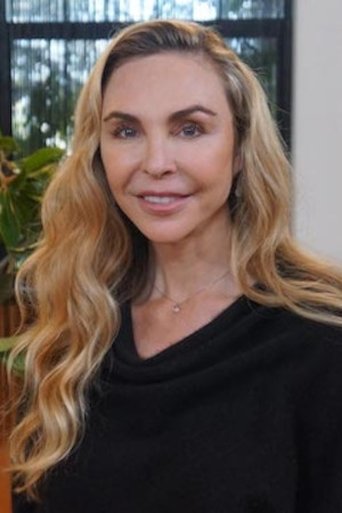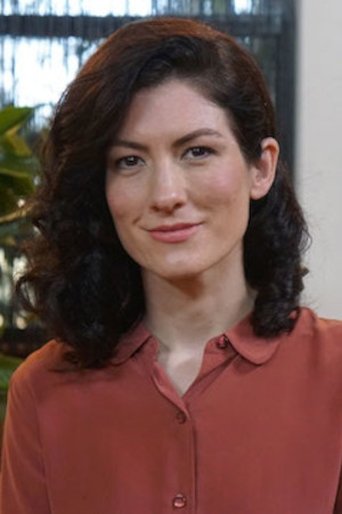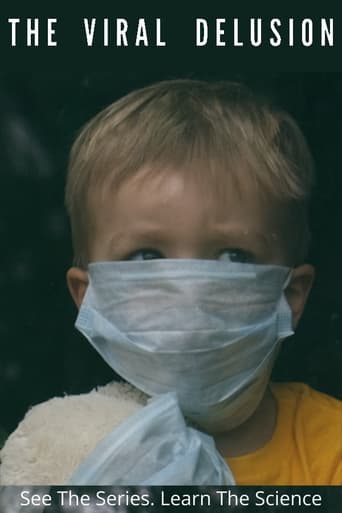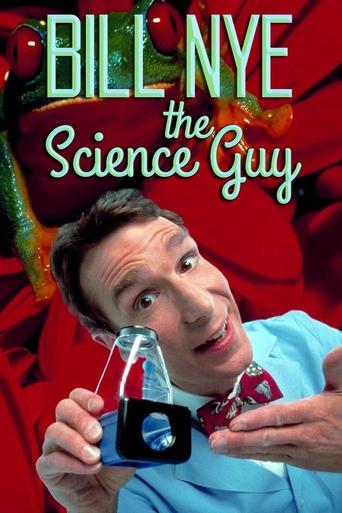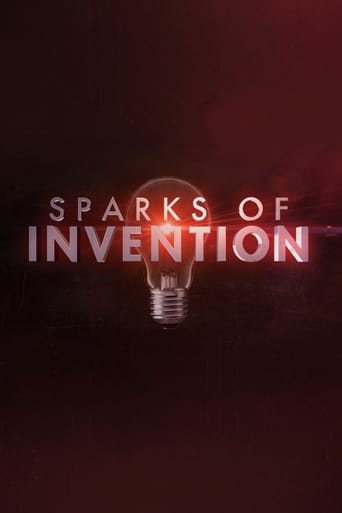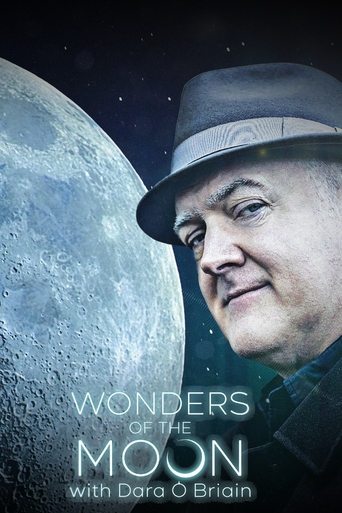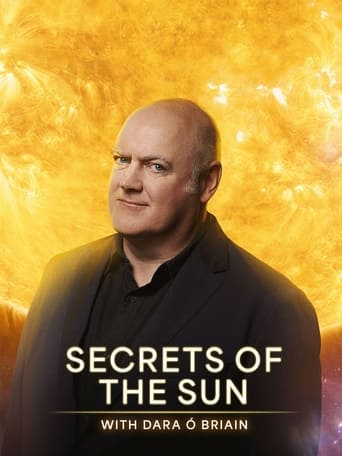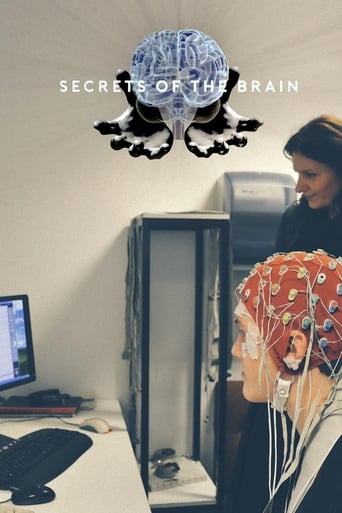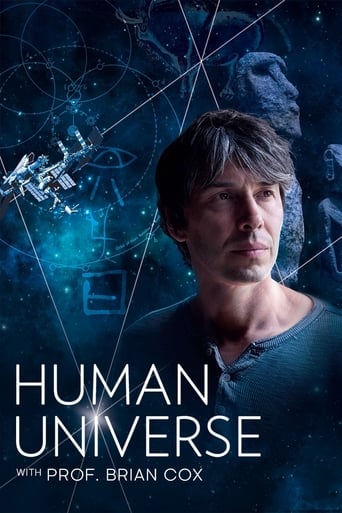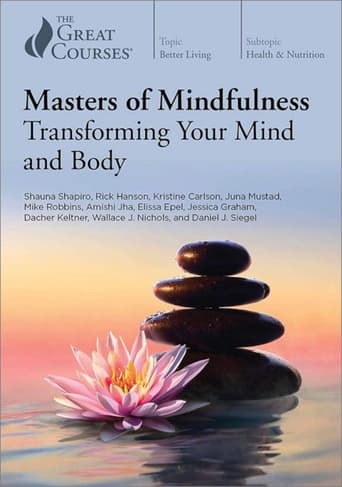
Rating:
0/10 by 0 users
Mindsight: Understanding Your Inner Life
Our minds include our subjective experience, consciousness, and information processing. But how does this all come together? With Dr. Dan Siegel, learn why self-organization is one of the key attributes of all complex systems, including the healthy mind. Discover how that quality of integration predicts the quality of mental health, and how the practice of mindfulness can take us from the states of rigidity and chaos to healthy integration.
Writing:
Release Date:
Mon, Jan 01, 2018
Country: US
Language: En
Runtime:
Country: US
Language: En
Runtime:
Shauna Shapiro
self
Juna Mustad
self
Rick Hanson
self
Kristine Carlson
self
Mike Robbins
self
Amishi Jha
self
Elissa Epel
self
Jessica Graham
self
Dacher Keltner
self
Wallace J. Nichols
self
Daniel J. Siegel
self
Season 1:
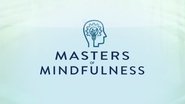
Mindfulness, the art of being fully present, allows practitioners to see clearly and respond effectively. It can strengthen our immune system, decrease stress, increase cognitive function, and allow us to feel more compassion. With Dr. Shauna Shapiro, explore your own purpose for engaging on a journey of mindfulness with respect to intention, attention, and attitude. Given that what you practice grows stronger, what do you want to practice in your own life?

In this session with Dr. Shapiro, open by engaging in a meditation exercise to gather intention and center yourself in the present moment. Explore common questions about mindfulness, from concerns about maintaining focus to dealing with feelings of tiredness and even physical pain, and learn how to begin your own mindfulness practices and how to set goals you can commit to.

Wouldn't it be wonderful if you could become stronger and more resilient throughout the course of your life by developing new inner resources to address challenges and vulnerabilities? As Dr. Rick Hanson will show you, you can. Although our brain evolved to scan the world for the negative in order to keep us safe, learn how the practice of mindfulness can help you grow inner resources by using positive neuroplasticity.

Chances are you have a lot of positive experiences in your life right now. But are they fleeting—do you even truly notice them? Learn how a mindfulness practice can help you convert positive experiences into long-term beneficial traits, through self-directed positive neuroplasticity, what Dr. Rick Hanson calls “the superpower of superpowers.”

Because we are human, heartbreak or loss will come to us at some time in our lives. Author Kristine Carlson shares powerful stories of loss and grief, and the role her mindfulness practice played in her healing process. She explains how practicing mindfulness now can even help you better face difficult times in the future. Learn how to access peace, even when joy might not be present.

Learn how you can really be of service to another person in his or her time of grief—and what actions and words are more harmful than helpful. Is it possible to reframe the concept of loss so you can move through it with an attitude of embracing the transformation and change? Kristine Carlson shows how your own mindfulness practice can help fill the gaping hole in your life caused by loss with the fullness of the present moment.

We’re always glad to be mindful of our emotions of gratitude, awe, or joy. But what about anger? With Juna Mustad, an expert in “mindful anger,” learn why our normal reactions to anger—either allowing it to drive our actions or stuffing it deep inside—are unhealthy. Learn how to become mindful of your anger, and how that awareness can point you to a healthier, more authentic life and better relationships with others.

Neuroscience reveals why we tend to act more quickly on our feelings of anger than any other emotion. We often regret acting out of anger, but what can we do about it? Learn how a mindfulness practice can help you take more appropriate action in response to anger by affecting your body chemistry and growing new connections in specific parts of the brain in this second session with Juna Mustad.

Author and former professional baseball player Mike Robbins brings a unique perspective to the workplace. As a baseball player, he noticed that the most successful teams were not necessarily those with the greatest individual talent but those with the greatest chemistry and support between players. Mr. Robbins shares techniques to help you create that chemistry and support in the workplace by creating an atmosphere of mindful authenticity.

Continue your look at mindfulness in the workplace with Mike Robbins. Understand the difference between recognition and appreciation and why appreciation in the workplace can increase employee satisfaction, retention, productivity, and overall mental health. Learn how the mindfulness practice of gratitude can make a difference in your life—both in the workplace and in your personal relationships.

Our ability to pay attention and stay focused on a task is incredibly important for our productivity and safety—and often the safety of others. But the attention system in our brain is easily affected by our moods and stress. Are there exercises we can do to train our brain? And, if so, does that training show benefits over time? Join Dr. Amishi Jha to explore brain training from a new perspective.

Dr. Amishi Jha shares her lab's exciting research on the effects of mindfulness-based training programs on cognition, emotion, and resilience. While other types of brain training do not seem to result in long-term benefits, mindfulness training can positively impact the physical structure and functioning of the brain, especially in the three distinct brain networks related to attention and focus.

Recent scientific discoveries reveal not only the mechanisms of aging at the cellular level, but also how our mental activities affect those processes. With Dr. Elissa Epel, learn how your activities—including a mindfulness practice—can affect inflammation; the length of the telomeres that protect our chromosomes; the health of our mitochondria, our cells’ centers of energy production; and our epigenome, the chemical compounds that turn our genes on and off.

See how changes you make in your mental and emotional life can affect aging at the cellular level and why the effort it takes to explore some of life’s biggest questions—your own purpose, the meaning of your relationships, and more—is worth your while. Dr. Elissa Epel discusses what neuroscience reveals about the ways in which your social life and personal relationships impact your physical rate of aging.

What do you think about during sex? Jessica Graham’s work reveals that many of us are focused on how we look, what our partner thinks about us, how we’re “performing”—all thoughts that take us outside our body. Instead, learn how mindful sex allows you to better access the pleasure in your own body, create a deeper connection with your partner, and enjoy your own sexuality more than ever before.

Orgasm anxiety (is our orgasm too fast, too slow, not happening at all?) takes us away from sexual pleasure. But mindful sex can refocus our attention on the body’s innate sexual feelings without judgment, allowing us to relax into pleasure. Jessica Graham shares the concept of “flow” meditation as well as ways mindfulness can help forge better communication between partners, deepening both pleasure and meaningful connection.

Join Dr. Dacher Keltner and learn why awe is called a defining human strength and how this emotion and phenomenon differs significantly from beauty and astonishment. What do people report as their main sources of awe, and how does it make them feel? Why is an awareness of awe a central part of the human experience?

Why does emotion emerge in mammalian evolution and what role does the emotion of awe play in human development? Dr. Dacher Keltner takes you on an exploration of what scientists have discovered about the cross-cultural universality of awe and its physical, mental, and social benefits—and specific ways in which you can experience awe more often in your own life.

What has neuroscience revealed about the importance of our connection to the natural world and especially our connection to water? Can a mindful connection with lakes, rivers, and oceans—or even the ordinary water we drink—heal the stress and busyness of our modern lives? Learn the ways in which our brain and body are hardwired to respond positively to water with marine biologist and “water evangelist” Dr. Wallace J. Nichols.

Dive into the seven ages of water, from birth to death, and explore the many ways in which water impacts our emotional lives. From play to romance to flotation therapy, Dr. Nichols shows how being mindful of water can increase your mental and physical health, and why many scientists refer to water as medicine. Whether you live by the ocean or in the desert, learn how to make “Blue Mind” a part of your life.

Our minds include our subjective experience, consciousness, and information processing. But how does this all come together? With Dr. Dan Siegel, learn why self-organization is one of the key attributes of all complex systems, including the healthy mind. Discover how that quality of integration predicts the quality of mental health, and how the practice of mindfulness can take us from the states of rigidity and chaos to healthy integration.

Dr. Siegel shares his guided mindfulness meditation called “Wheel of Awareness.” With this practice, you’ll learn to integrate four main aspects of life and mind: the five senses, internal bodily sensations, mental activity and emotions, and relationship to the outside world. More than 10,000 individuals have experienced the Wheel of Awareness, integrating these four aspects of the life of the mind to create better mental health.

